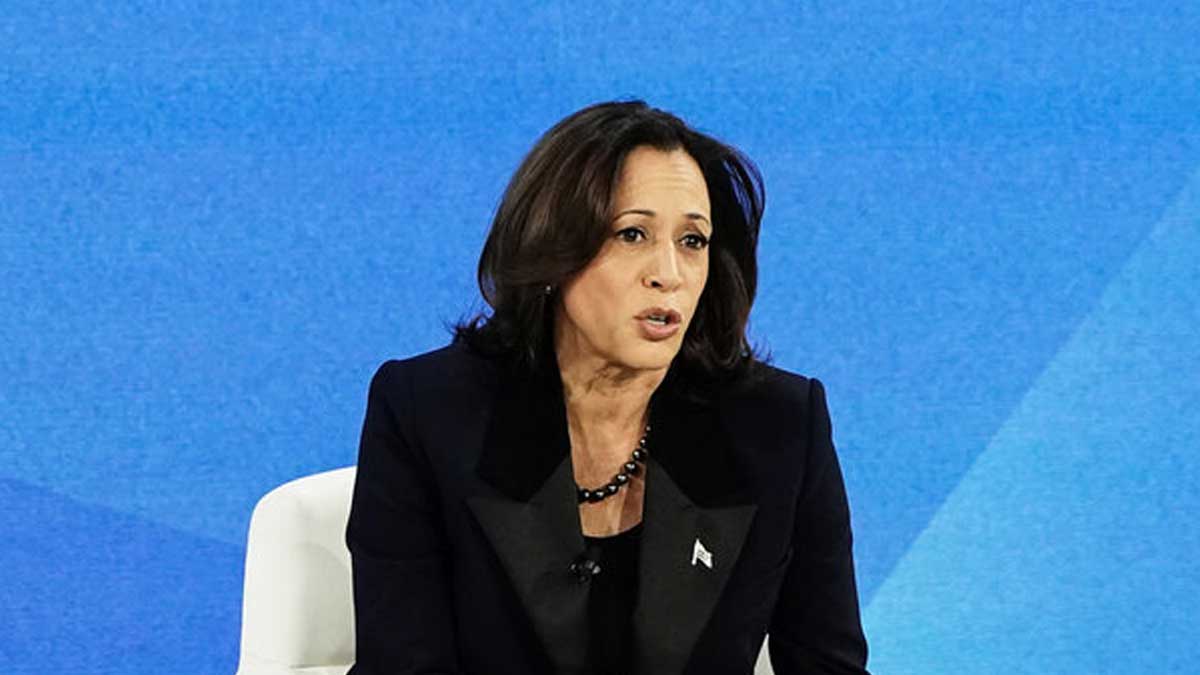- Home
- Billionaires
- Investing Newsletters
- 193CC 1000
- Article Layout 2
- Article Layout 3
- Article Layout 4
- Article Layout 5
- Article Layout 6
- Article Layout 7
- Article Layout 8
- Article Layout 9
- Article Layout 10
- Article Layout 11
- Article Layout 12
- Article Layout 13
- Article Layout 14
- Article Sidebar
- Post Format
- pages
- Archive Layouts
- Post Gallery
- Post Video Background
- Post Review
- Sponsored Post
- Leadership
- Business
- Money
- Small Business
- Innovation
- Shop
Recent Posts
Kamala Harris’s Impact on Tech Stocks Sparks Market Rally

Technology stocks experienced a notable rebound on Monday, igniting a broader market rally. This surge followed President Joe Biden’s announcement that he would not seek reelection, along with his endorsement of Vice President Kamala Harris. Market analysts suggested that this shift influenced recalibrations of expectations regarding a potential Donald Trump victory. Despite this, the long-term impact on stock prices remains uncertain.
By late morning, the tech-heavy Nasdaq index had climbed nearly 1%, marking its best performance in almost two weeks. The S&P 500 followed with a 0.5% increase, while the Dow Jones Industrial Average remained largely unchanged. This uptick came after Biden’s decision to exit the race led to a slight reduction in Trump’s election odds, as reflected in betting markets.
This recovery contrasts sharply with last week’s downturn, where both the S&P 500 and Nasdaq saw losses exceeding 2%, their worst week since April. On Monday, major technology stocks were among the day’s top performers. Shares of four out of six West Coast tech giants, each valued over $1 trillion, rose by at least 0.5%. Notable gains were seen in Google’s parent company Alphabet, Meta Platforms (formerly Facebook), and Nvidia, which saw increases of around 2%.
Conversely, stocks that had surged the previous week in anticipation of a Trump presidency lagged during Monday’s rally. The S&P 500’s energy sector, which had been buoyed by expectations of reduced regulation under Trump, fell 0.4%, marking the most significant loss among the index’s 13 sectors.
Solita Marcelli, UBS Global Wealth Management’s Chief Investment Officer for the Americas, indicated that the recent market shift from ‘red’ to ‘blue’ sectors could partly reverse as investors digest new developments. Wells Fargo Investment Institute’s President, Darrell Cronk, also noted that the Trump trade might diminish, as Trump’s policies had previously boosted energy, financials, and materials stocks, while tech stocks, heavily exposed to China and Taiwan, had suffered.
Tom Essaye, founder of Sevens Report, suggested that the market’s reaction to changing election expectations might be short-lived. More immediate factors, such as corporate earnings and interest rate movements, are likely to have a more substantial impact on stock prices.
Ultimately, the performance of the stock market is driven more by economic fundamentals than by the occupant of the White House. Morgan Stanley strategist Michael Wilson emphasized that the broader economic cycle has a more significant impact on stock performance than presidential politics. Harris’s economic policy record is limited, but Isaac Boltansky, Managing Director of U.S. Policy Research at BTIG, noted that a Harris presidency would likely represent a continuation of Biden’s policies.
The potential overlap between Biden and Harris might be beneficial for major technology companies, which have thrived amid the artificial intelligence boom. These firms, deeply involved in China and sensitive to trade policies, may find stability under Harris, who has a history of favorable interactions with major tech firms from her time as California Attorney General. Although Harris is not yet the official Democratic nominee, her previous support for companies like Google suggests continuity in tech-friendly policies.
On Monday, semiconductor stocks also saw a significant rebound after suffering losses the previous week. As Trump had proposed policies that were seen as favorable to the semiconductor industry, stocks in this sector, including the iShares Semiconductor ETF (SOXX), rose more than 2%, marking its most substantial gain since July 9. Yardeni Research founder Ed Yardeni remarked on the recent market volatility, noting that the tech sector, which had led the market’s rally over the past year and a half, had experienced notable declines. Whether this downturn is a result of shifting political expectations or a standard market correction after significant gains remains unclear. Since Biden’s inauguration in 2021, the S&P 500 has risen by 51%, compared to an 83% gain during Trump’s presidency. Key drivers of the Biden-era gains include major tech stocks like Nvidia, which has surged over 800%, and Microsoft, which has risen by more than 100%.
Recent Posts
Categories
- 193cc Digital Assets2
- 5G1
- Aerospace & Defense46
- AI37
- Arts3
- Banking & Insurance11
- Big Data3
- Billionaires449
- Boats & Planes1
- Business328
- Careers13
- Cars & Bikes76
- CEO Network1
- CFO Network17
- CHRO Network1
- CIO Network1
- Cloud10
- CMO Network18
- Commercial Real Estate7
- Consultant1
- Consumer Tech180
- CxO1
- Cybersecurity68
- Dining1
- Diversity, Equity & Inclusion4
- Education7
- Energy8
- Enterprise Tech29
- Events11
- Fintech1
- Food & Drink2
- Franchises1
- Freelance1
- Future Of Work2
- Games141
- GIG1
- Healthcare78
- Hollywood & Entertainment186
- Houses1
- Innovation42
- Investing2
- Investing Newsletters4
- Leadership65
- Lifestyle11
- Manufacturing1
- Markets20
- Media193
- Mobile phone1
- Money13
- Personal Finance2
- Policy567
- Real Estate1
- Research6
- Retail1
- Retirement1
- Small Business1
- SportsMoney33
- Style & Beauty1
- Success Income1
- Taxes2
- Travel10
- Uncategorized8
- Vices1
- Watches & Jewelry2
- world's billionaires418
Related Articles
Tesla Recalls 700,000 Vehicles Over Tire Pressure Issue
Tesla has announced its latest recall of nearly 700,000 vehicles in the...
By 193cc Agency CouncilDecember 20, 2024MicroStrategy Stock Rallies on Nasdaq 100 News
Shares of MicroStrategy surged on Monday following the announcement that the company...
By 193cc Agency CouncilDecember 16, 2024Stanley Recalls Millions of Mugs After Burn Injuries
In a significant recall, Stanley, the well-known brand behind popular stainless steel...
By 193cc Agency CouncilDecember 12, 2024Adobe Shares Drop 12% After Lowering Revenue Outlook
Shares of Adobe experienced a significant drop of over 12% on Thursday,...
By 193cc Agency CouncilDecember 12, 2024















Leave a comment